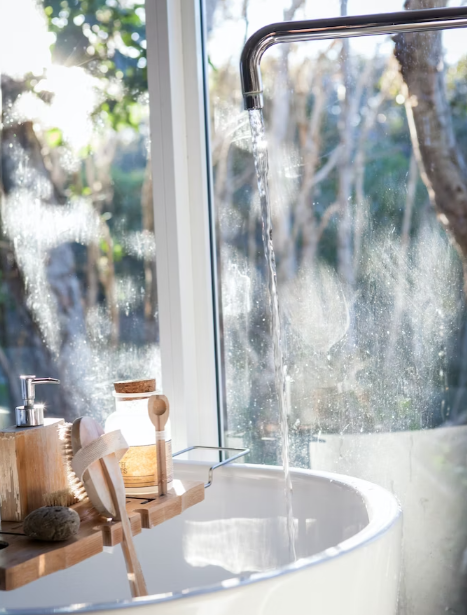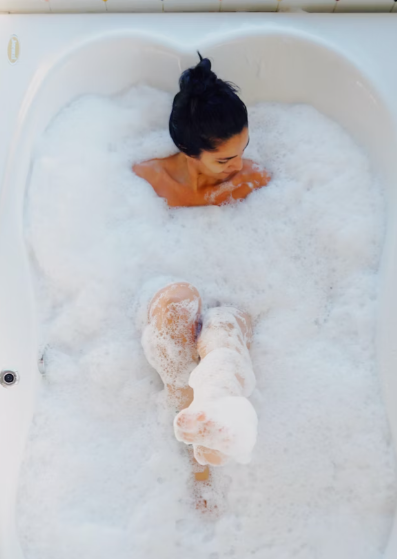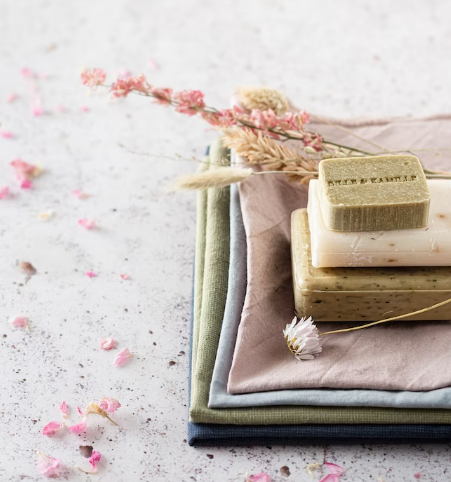The concept of showering every morning is ingrained in many cultures around the world. About 75% of Americans say they bathe every day, and in warmer climates like Mexico, Colombia, and Australia, that number soars to nearly 95%.
But are these showers really necessary? Isn’t it unhygienic and unhealthy not to bathe for three or four days? Where did the concept of daily showers come from? This article discusses the science behind showering and explains why showering once a day can actually do more harm than good.

How Often Do Scientists Recommend I Take a Bath?
Scientists don’t agree on many things, but there’s one fact that every dermatologist who deserves a degree can agree: bathing once a day makes bathing too often. Unless you’re rolling in the mud all day, there’s no need to bathe every morning at all. Even if you only shower once a week, you can maintain good personal hygiene, especially if you live in a cold climate and lead a sedentary life (i.e., if you are an office worker or couch fan).
For those who find this a bit nauseous or who are more active during the day, bathing every two or three days is also fine. Almost anything better than bathing every day is better than not bathing at all. In an interview with Buzzfeed, dermatologists Dr. Zeichner and Dr. Hirschan even said that bathing too often can “dry out and irritate the skin, wash away the beneficial bacteria naturally present on the skin, and create small cracks that can make your skin drier.
Showers Are Harmless, Right?
While it is technically not going to hurt anyone to shower more than you actually need to, it can cause considerable damage to your skin. As mentioned earlier, bathing too often can lead to dryness, irritation, and cracking. It can also exacerbate skin conditions such as eczema and cause rashes. Ah.
But a daily shower doesn’t just damage your skin. The shower lasts about 9 minutes on average and uses about 65 liters of water. If you bathe every day, this means that you use around 23,700 liters of water per year. Reduce the number of showers to once every two days and the number of showers is halved, which means you save 11,850 litres of water per year. Thanks to a simple lifestyle change, a lot of water won’t go down the drain, and it can also save you a fortune on your annual water bill.
How to Shower Without Hurting the Skin?
For those who can’t stand not bathing every day, there are ways to perform daily rituals while minimizing damage to the skin. The first and most obvious recommendation is to shorten the shower time. As mentioned earlier, the average American showers for nine minutes. However, most dermatologists recommend drastically shortening this period. Experts say that a two-minute shower is enough to keep you clean.
The type of soap you use can also affect how the shower affects your skin. If you scrub from head to toe every day with harsh soap with ingredients like lauryl sulfate, your poor skin may call you for a change. Replacing a milder soap with a more irritating soap can make a big difference.

If you’re not sure how to tell the difference between mild soap and strong soap, try picking a product designed for babies. Due to the sensitivity of baby skin, baby soaps, lotions, and shampoos rarely contain any harsh chemicals, so they are also very suitable for adult skin.
How Often Should I Wash My Hair?
How often you should wash your hair largely depends on your hair quality, the climate in which you live, the natural oiliness of your scalp, and how much you sweat. However, one specific rule that dermatologists all agree on is that once a day is too frequent.
Washing your hair with shampoo will remove oil from your hair, and if you wash too much, the scalp will overcompensate and produce more oil, which will make your hair greasy and even smelly. This is paradoxical, but washing your hair too often can make your hair dirtier. Washing every three days is a good general rule, but no one knows your hair better than you. If you can easily wash in a week or more without becoming greasy or dull, you’re totally fine.
Why Do People Start Bathing so Often?
Daily bathing may be necessary for workers in industries such as construction and plumbing or for people who do heavy physical labor every day. Similarly, frequent gym people who sweat daily exercise need to take a shower if they don’t want friends and family to complain about their smell. Those living in hot tropical climates may have similar needs.
However, most people do not lift heavy objects and do not endure the extreme heat day after day. Office workers and almost sedentary people still feel the need to take a shower every morning and, in some cases, every night. Why is that?
The answer lies in social pressure. Clean, decent and odor-free are the deep-rooted ideals of modern society. Many people think that not bathing in the morning will immediately attract the attention of everyone around; They will be ridiculed and considered unhygienic. The idea was driven in part by shampoo, soap and lotion companies that idealized showers and baths to sell more.

In fact, if your lifestyle is mostly sedentary and you use deodorant, no one will be able to know if you took a shower two hours ago or two days ago. You will look and smell exactly the same. Cleanliness is important, but bathing twice a day is not necessarily cleaner than someone who bathes once in two days. It’s all about moderation.
Reducing Showers Saves Time, Money, And the Environment
You really don’t need to shower every day. It can damage your skin – frankly, it’s just a waste of water. Instead, experts say that bathing every two to three days is better for you and enough to keep you clean and smell fresh.
Hair should also not be washed every day, but every three to four days, depending on the type of hair. If you are an active person or often get dirty at work and need to bathe every day, showering with warm water for a short time and using baby soap can minimize damage to your skin. The habit of bathing daily is so ingrained in some cultures that some people may be shocked to realize that it is not necessary. But the simple fact is that reducing the number of showers saves time and money, and it also helps the environment.